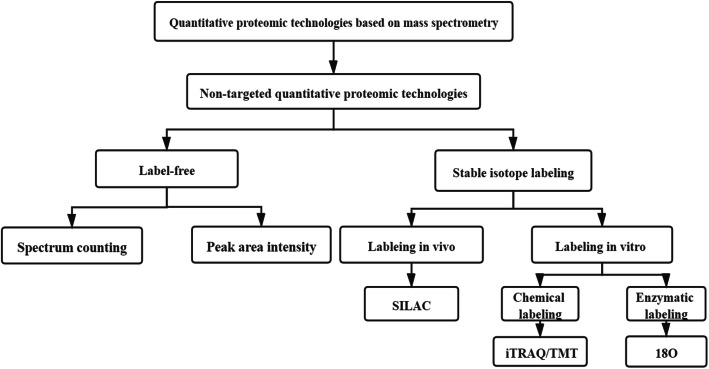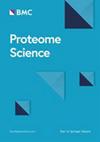急性呼吸窘迫综合征的非靶向蛋白质组学:临床和研究应用。
IF 2.1
3区 生物学
Q3 BIOCHEMICAL RESEARCH METHODS
引用次数: 5
摘要
急性呼吸窘迫综合征(Acute respiratory distress syndrome, ARDS)以肺部积液引起的难治性低氧血症为特征,死亡率高,但其发病机制尚不完全清楚,导致ARDS缺乏特异性治疗药物。近年来,越来越多的研究将蛋白质组学应用于ARDS。ARDS中蛋白质组学的非靶向研究才刚刚开始,有可能确定这种疾病的新药物靶点和关键途径。本文就非靶向蛋白质组学在ARDS中的应用进展作一综述。本文章由计算机程序翻译,如有差异,请以英文原文为准。

Non-targeted proteomics of acute respiratory distress syndrome: clinical and research applications.
Acute respiratory distress syndrome (ARDS) is characterized by refractory hypoxemia caused by accumulation of pulmonary fluid with a high mortality rate, but the underlying mechanism is not yet fully understood, causing absent specific therapeutic drugs to treat with ARDS. In recent years, more and more studies have applied proteomics to ARDS. Non-targeted studies of proteomics in ARDS are just beginning and have the potential to identify novel drug targets and key pathways in this disease. This paper will provide a brief review of the recent advances in the application of non-targeted proteomics to ARDS.
求助全文
通过发布文献求助,成功后即可免费获取论文全文。
去求助
来源期刊

Proteome Science
生物-生化研究方法
CiteScore
2.90
自引率
0.00%
发文量
17
审稿时长
4.5 months
期刊介绍:
Proteome Science is an open access journal publishing research in the area of systems studies. Proteome Science considers manuscripts based on all aspects of functional and structural proteomics, genomics, metabolomics, systems analysis and metabiome analysis. It encourages the submissions of studies that use large-scale or systems analysis of biomolecules in a cellular, organismal and/or environmental context.
Studies that describe novel biological or clinical insights as well as methods-focused studies that describe novel methods for the large-scale study of any and all biomolecules in cells and tissues, such as mass spectrometry, protein and nucleic acid microarrays, genomics, next-generation sequencing and computational algorithms and methods are all within the scope of Proteome Science, as are electron topography, structural methods, proteogenomics, chemical proteomics, stem cell proteomics, organelle proteomics, plant and microbial proteomics.
In spite of its name, Proteome Science considers all aspects of large-scale and systems studies because ultimately any mechanism that results in genomic and metabolomic changes will affect or be affected by the proteome. To reflect this intrinsic relationship of biological systems, Proteome Science will consider all such articles.
 求助内容:
求助内容: 应助结果提醒方式:
应助结果提醒方式:


